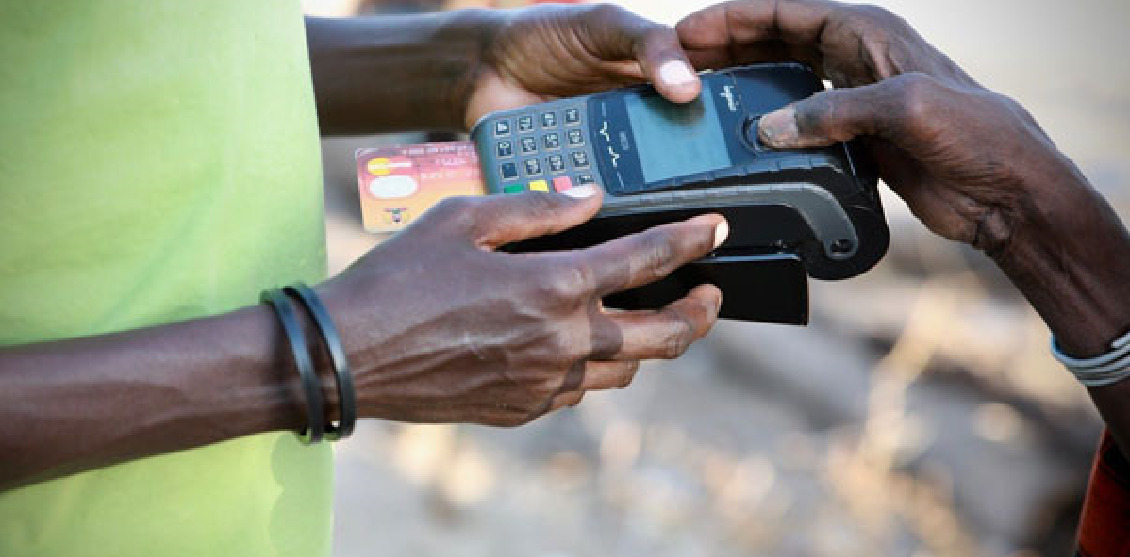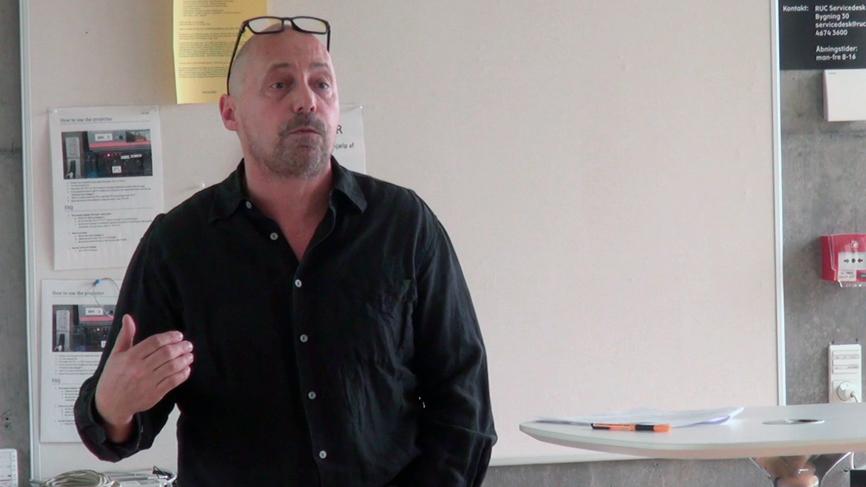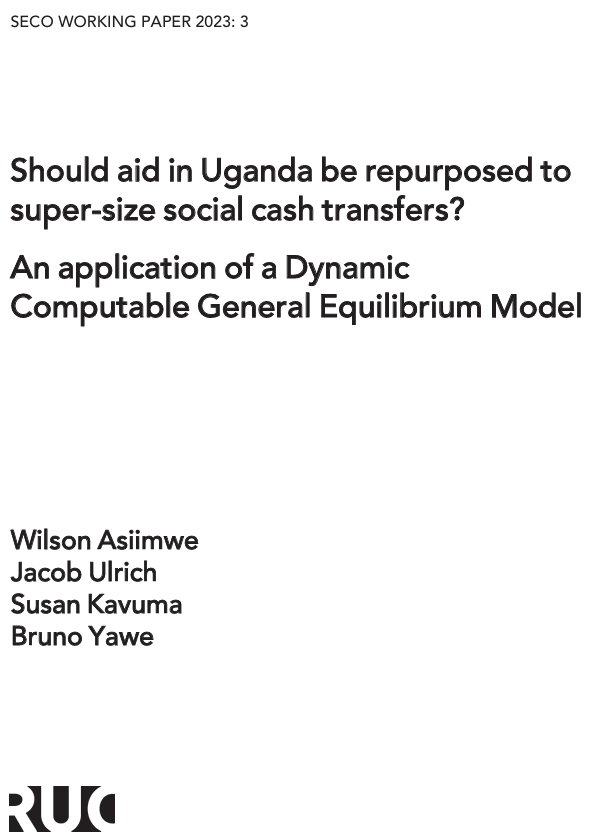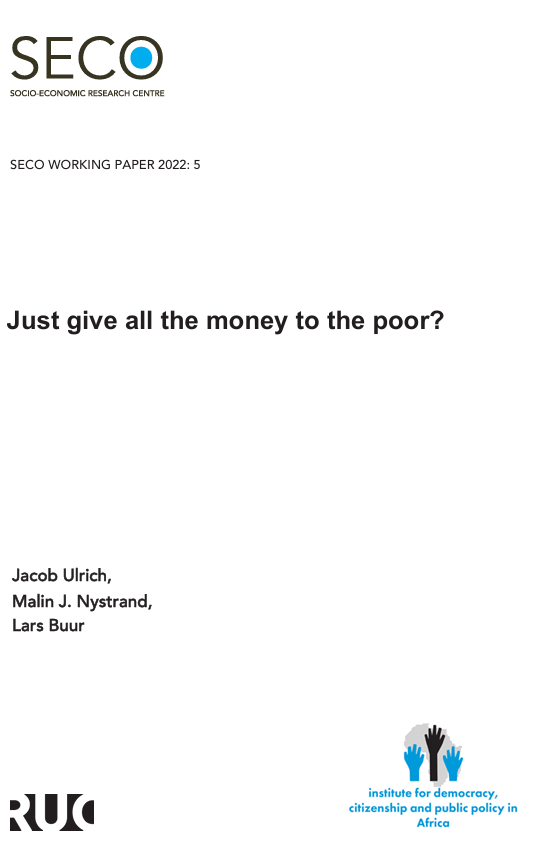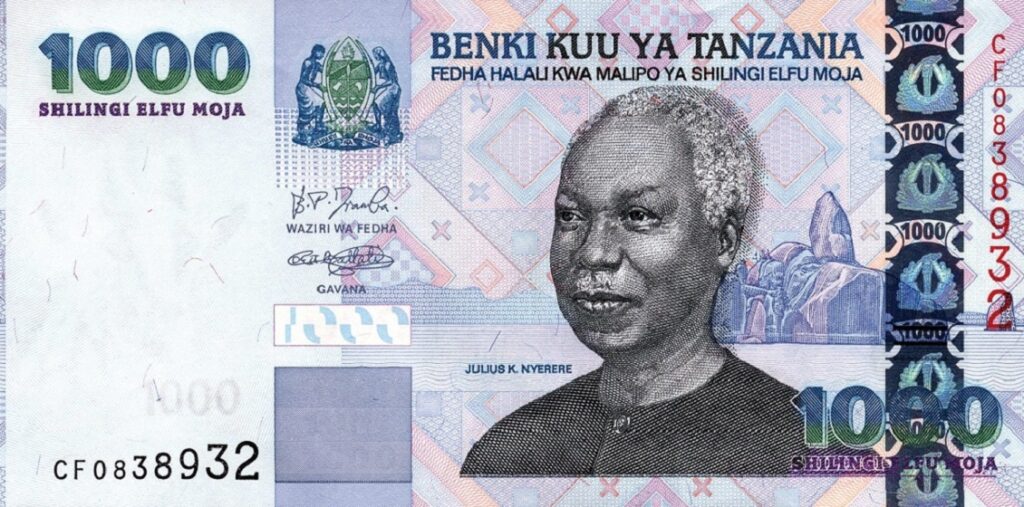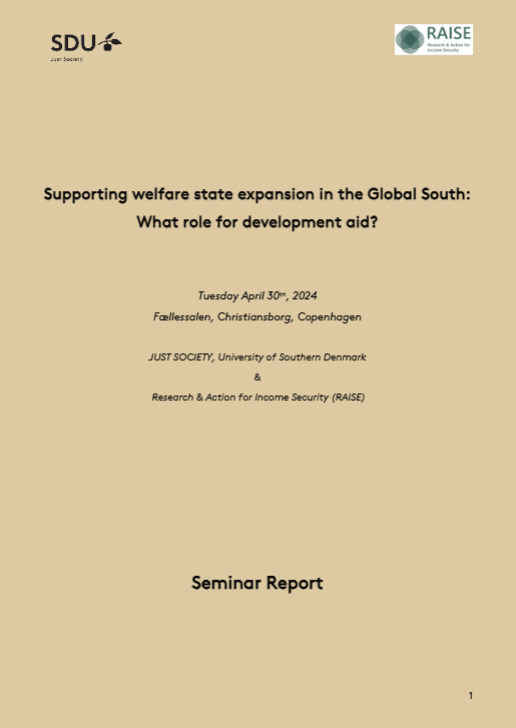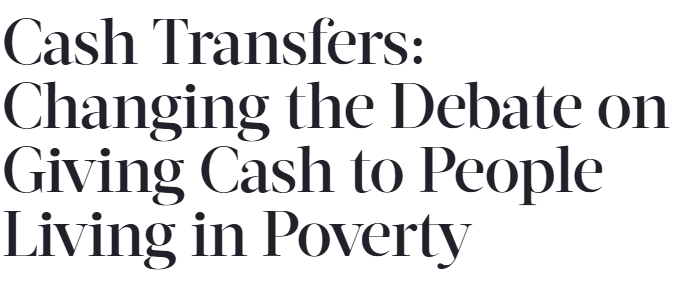From Consultancy to PhD research at Roskilde University – interview with Jacob Ulrich
- Tell me a bit about your career
I started out studying International Development Studies here at Roskilde University. However, I went to the US to complete my master’s degree in international affairs at Colombia University. It was in 1995. Then, I worked in the COWI consultancy company right after that.
- What kind of function did you have?
Several different functions, mostly related to different kinds of international aid. I worked in 30 different countries and was posted in 6-7 countries.
- How many years did you work with COWI?
I left in 2015, so almost 20 years with COWI, spending 6-7 years in Eastern Europe, mostly in the Baltics, on EU integration projects. The idea was to have the Baltics joining the EU. Then, I have worked about 15 years in Africa, primarily as head of subsidiaries of COWI and later for an American organisation. Thus, I have been involved in a large number of aid programs and projects, also for the private sector, in Africa and Eastern Europe and to a small degree also in Asia and Latin America. In addition, I worked for one year with the Danish Ministry of Foreign Affairs in Kosovo. I was posted in the Prime Minister’s Office and was a Senior Advisor on Aid Management. The idea was that Kosovo received significant development funding after the war, and needed to manage these funds and projects effectively. So, I have been involved in general management of aid and aid policies. And I have spent time on ‘nuts and bolts’, i.e. implementation.
- How was the transition from the role of being a practitioner to become an academic?
After the years in COWI, I worked five years for an American NGO in Africa. And throughout the 25 years in total, I have been keen to clarify and test myself and my alternative ideas. I think many people in the aid business have ideas on how to do it differently and so do I. I have observed that a lot of aid interventions succeed, but still, some do not. The effectiveness is often low. I felt I had ideas about doing things differently. One idea was about social cash transfers. Rather than having funds transferred through the aid industry – spending the money on projects, seminars, conferences, consultants and four-wheel drives – perhaps give the money directly to poor people? Now we have modern technology which can facilitate that, mobile phones, mobile banking and mobile networks and it is possible to reach almost every African in the countryside and do the cash transfer. We have a lot of evidence from socio-economic studies that it works quite well. I wanted to explore that further. And during my personal journey, I knew Lars Buur whom I met when I was posted in Mozambique for COWI 15 years ago. Back then in Maputo we met for lunch once a month, and in 2020 I contacted him about my ideas on social cash transfers. With Lars as Principal Investigator, we made an application to the Ministry of Foreign Affairs about the relatively large research project Cash-In, and it was approved, including a PhD scholarship for me.
- How did you manage, after so many years as a practitioner, to enter into the fields of scientific theorizing and methodologies?
In principle, it is not more difficult for me as compared with somebody having recently graduated with a master’s degree, except that the 25 years of practice in 30 countries may have made me academically rusty. However, although working for a consultancy and in a university is different, is in some respects the same as both focus on analysis. Another positive dimension is that I have accumulated lots of what the academics would call “anecdotical evidence”. I have seen how development aid plays out for better or for worse including seeing it from inside the receiving government. I have been an advisor in Ministry of Finance in Zambia, Prime Minister’s Office in Kosovo and the Ministry of Environment in Latvia.
- How about getting on par with the academic literature?
That is the challenging part, although I had of course read some of it. But it is a new world, also in relation to how to argue a position. When you write a consultancy report, you essentially make your analysis based on available data, draw conclusions, and share the report and findings with the client. In an academic context, you basically do the same except that you cannot write three lines without making an academic reference rooted in the relevant academic literature. Which is meaningful but also cumbersome because you need to know that relevant literature. So, I forced myself to read a lot and actually learned to enjoy it. However, it is a challenge, also to start at the lower end of the hierarchy, now doing a PhD. Earlier, I was a director. Now it is a different role, I cannot delegate anything to a personal assistant or a team of consultants. To navigate as a director in small companies in Africa has brought me a lot of meaningful experiences and colleagues. It counts a lot, but not as an academic reference. It has made me more knowledgeable about which directions are meaningful to study. But you still have to start from the beginning and read all that literature.
- The outlook within this academic sphere is always uncertain, as permanent positions are much fewer compared to the number of PhD projects.
We have fortunately won another project, which includes a postdoctoral position for me. However, engaging into the unknown, you never know what comes next. It is more fun but also uncertain.
- What was the original idea of the PhD and Cash-In research project?
Lars and I discussed that it would be interesting to study whether it would make sense to give more development aid in this way – via direct social cash transfers which in real terms are child benefits, pensions, and disability benefits. How to study that? What kind of research was missing in this field? We applied for a research project via Danida’s Research Grant Facility with some partners at universities in Tanzania (Dodoma University) and Uganda (Makerere University). We designed a project which in the title and in the content focused on privately managed social cash transfers, i.e. not via government, but transfers managed by NGOs as an alternative to publicly funded via the government or donor-funded transfers. Previously, not much research was done on the impact on the NGOs and their political role. Thus, there was a gap in academic literature. We had discussions with our partners and made a joint application. We were successful and the project became a five-year program. The primary focus of the program is: What happens when NGOs are managing cash transfers and how does it impact upon politics? My particular focus is about up-scaling and actually focused on both NGOs and government. What if 50 or 75 % of the development aid were channeled to social cash transfers, thus bypassing ‘the aid industry’ and reaching the population directly? In principle, aid effectiveness will increase due to the reduced costs on bureaucracy. Social cash transfers are quite cheap, and if successful in reaching the beneficiaries also local economic activity will increase. Thus, there is a lot of potentially positive aspects, and this is what I cover in my PhD project about upscaling.
- The privately managed transfer refers to NGOs and similar organisations. How does this match with the earlier aid policy of providing budget support for governments? Listening to Christian Friis Bach, the argument for direct welfare benefits is also about making the governments responsible for delivering these benefits. Your approach represents one alternative.
Yes and not necessarily a better alternative, but an approach with certain advantages and disadvantages. We can distinguish between different positions about donor aid for social cash transfers. One logic would be that we must assist e.g. Uganda and Tanzania in building some form of welfare systems with all the different kinds of benefits. Then, the question is who should play the main part in such effort? Usually, that would be the government, also due to the social contract between citizens and government. What is then the role of development aid? It can provide some initial funding to kick off the effort, including pilot projects and capacity building. Then, in the medium term, local governments are supposed to take over the funding based upon tax revenues. That is one model. Another position is that cash transfers may be more impactful if channeled through NGOs, which may in some cases be more effective than governments. But how would governments perceive and react to this? We have compared Tanzania and Uganda. In Tanzania, the government has a more universalist approach to social service delivery which NGOs become very much integrated with. Thus, the NGO efforts is fitted into the overall picture. In Uganda, which has somewhat less universal delivery of services and more patronage, the NGOs are not directly integrated but are, or were, running in parallel to government. However, one US based organization for cash transfers was stopped, as the government perceived them as politically negative by supporting the opposition. Studying this, one may assess whether cash transfers via NGOs are effective in terms of socio-economic impact, and how do they impact upon the social contract between citizens and the government. In Tanzania, although the transfers are delivered by NGOs, the citizens may associate them with the government, because it is the government which requests or permits the transfers. Thus, the government receives the political bonus points.
- Also as in our Danish context, the discussion is about the level of the various benefits and about who are entitled to receive them. That is a political process.
Yes, to a large extent, in many countries, it is of course a political process. In other places, it is the involved NGOs setting certain limits in some sort of a negotiation with the government.
- Could that motivate a critique that when such decision-making is run by the NGOs – and we do not know for how long they can stay – it might end up in some kind of emergency aid, because the effort is not embedded in the particular country?
Yes, that is a question of organizational and financial sustainability. NGOs might have a five- or eight-years program, so what remains when they disappear? The total annual ODA is about 180 billion USD. Within that total humanitarian aid makes up close to 50 billion and 20 % of that humanitarian aid is already now delivered via social cash transfers. Because it is smart as compared to setting up e.g. food facilities, to give cash so that people themselves can go to the market and buy what they need. This is for relief right now, and as long as donor money is available. If you want a permanent system for child benefits in Tanzania and Uganda, you may ask whether it is a good idea to leave it with an NGO during 5-10 years and then just see what happens. With regard to sustainability, imagine that the NGO would manage to bring benefits to for example 10.000 children for 5-10 years. Where is the sustainability? Probably there will be less stunting and malnutrition and likely improvements in education and health parameters. Some human capital will have been developed with these children, which is good. But long-term organizational sustainability of the program would be a concern. Especially if you go big. We modelled some relatively wild scenarios for Uganda. If you changed most of the aid, e.g. 75%, to be given as a child benefit at 18 USD monthly, to all children below the age of 5, then about 2/3 of current national poverty would disappear. It is quite surprising how much can be achieved. After the modelling I went on a field trip in Uganda to discuss with those involved and understand the politics and policy issues. Should and could this scaling of aid-funded social cash transfers be done or not? When you dig into the politics of it, the most sensible observations came from one Director working in the Ministry responsible for social affairs. He agreed that it sounded very attractive, and he himself had been fighting for such an approach. However, he also said that if you launch such a child support system and use development aid for it, and it works with all parameters going in the right direction, what then happens if the donors and the government disagree on something? Examples could be the rights of homosexuals or regional security politics. From the point of view of the government, a very sensitive situation develops. A positive social contract with the citizens would have been established, however donors can turn it off and on with their control of the funding. Thus, it requires a different modality of a financing mechanism, which includes a long-term commitment, e.g. via some sort of long-term global funds.
- Does the proposition by Christian Friis Bach have any influence on the Danish government and DANIDA?
Currently, there seems be surprisingly little engagement from Denmark in this field considering how many experiences we have with building such systems in our own country. I don’t think DANIDA is a front-runner in this area.
- How about other donors and agencies?
Actually, they appear somewhat more active. Due to the 20% of humanitarian relief already spent on cash transfers, UNHCR, UNICEF and other organisations are used to this line of intervention and may be interested in pushing for this further. ILO and World Food Program are also involved in social cash transfers. At the bilateral level, FCDA, the British, as well as Irish Aid and the Swedes are engaged. The World Bank has gone social over time. Thus, they have different programs for financing welfare reforms and social policy. Often, it is about social safety nets, based on the idea that we need to get the economy going, some will fall between the cracks and they need to be caught by a social safety net. There are different bilateral and multilateral donors, who appear to put this higher on the agenda as compared to DANIDA.
- Looking at the political parties in the Danish Parliament, are there any political spokesperson apart from Christian Friis Bach, who may be interested?
One member of the Christian Democrats participated in the seminar and seemed to be very interested. I have not heard any of the others expressing anything. A bit interesting in relation to what Christian Friis Bach mentioned during the seminar, was his reference to his earlier post as Minister of Development Aid. As I understood him, he was back then concerned about direct budget support, but never thought about direct welfare transfers. This issue was not on the agenda at the time. The idea to support welfare programs in that particular way was considered as something for the future. First, we need to make the economy grow, and then when a bit wealthier, welfare can follow. My idea about potentially allocating a major part of the current development aid to social cash transfers to effectively address poverty right now is not on people’s mind. That is not the way of thinking.
- There was a response from PLAN Child Foundation, when Christian Friis Bach criticized what he called ‘projectitis’, saying the interventions by the civil society organisations in Denmark are important. However, that involves a lot of overhead and other costs implementing projects, the impact of which may be achieved much cheaper by cash transfers.
My thinking on this is as follows: If new mobile technology and the evidence from cash transfers have made the old aid industry obsolete, when will we know? If you look at other industries, e.g. the transition from horse-driven carts to cars, this was brought about by the consumers choosing differently. The consumers of development aid are the 700 mio. extremely poor people. However, they are unable to vote with their wallet, because they have no money. Thus, any change will probably not come from the poor making different priorities. And it is perhaps unrealistic that the aid industry would suggest such a change itself. Almost everybody I know in this industry are clever, intelligent and conscientious. But maybe there are some structural conditions which makes it smarter to do something differently. And if that is the case, one cannot necessarily count on the aid industry promoting such a change.
Under all circumstances, you have to move carefully. It may be that I and other researchers are pointing towards social cash transfers, but a lesson learned in development aid is that the blueprints sometimes prove to be invalid when meeting reality. What could be done would be to implement pilot scaling schemes in some districts and countries and then observe how it works in terms of socio-economic impact and also in terms of politics – does it lead to better governance? In terms of the latter, the idea is that if you move development aid funds from current areas of expenditure to social cash transfers, then the government becomes somewhat underfinanced, and taxes would need to increase a bit faster to fund government expenditures. Thus, the more cash transfers, the more tax collection to finance the government is needed. That is very healthy, because accountability towards the citizens increases, while accountability towards donors is reduced. But let’s do it by expanding gradually, and then we carefully measure and register how it works. That is my recommendation: Pragmatic and gradually with good documentation in order not to regard this as just another blueprint plan claiming that we have the solution for everything.
- What are you currently researching in the Cash Transfer project. You mentioned that you have just now received a new research grant?
Yes, however, that goes in a somewhat different direction. It studies green transition in South Africa and Greenland but also has an angle about cash transfers.
- Your own PhD project, what is the specific research question? How far are you in the process?
I defended my PhD last week. I am asking one big question: Would it be a good idea to upscale donor funded social cash transfers? I have Uganda as a case and study various scenarios about socioeconomic effects and what will it take politically to make it happen. It is clear that if it is going to be implemented, it will be due to its political impact rather than the socio-economic results. Thus, I am looking at the political context and the implementation modality. Is it to be managed by the government or by NGOs? Or would it feasible at national level to establish an aid-to-cash foundation i.e. basket funding whereby the donors contribute to a fund which is governed by representatives of donors, civil society and the government. I explore whether such a hybrid model would work as a partly practical solution to some of the political challenges. The short conclusion is that it would be a very good idea in Uganda in socio-economic terms. Politically, it would be quite challenging. For the government as well as the donors, it would be difficult to go in this direction. You must, of course, take the politics seriously and adapt accordingly. Also, implementation modalities represent an area less understood. I study Uganda as a case, as it is until now more resistant when it comes to social cash transfers. Neighboring countries have moved further. Thus, if it will work in Uganda, it might also work in those neighboring countries.
- You mentioned that there might be a post doc option after the Phd project. What will that be about?
That is a project with two university partners, Stellenbosch University in South Africa, and Greenland University in Greenland, which is about green transition, people’s perception of values, and whether better deals can be negotiated with the large investors in solar and wind power, and critical minerals, the local communities, and also the government on the side. I will study South Africa, where I have worked earlier. That project may also have a cash transfer dimension, because South Africa has been quite innovative in setting up a lot of large-scale wind and solar energy parks during the last ten years. The authorities forced the private operators to make the local communities co-owners via community trust funds, which owns some of the shares in the energy parks. When a local community becomes a co-owner i.e. a shareholder, then what to do with profits? It could be paid out as dividends which would be similar to social cash transfers. That will be interesting to study if that happens. Currently, however, it appears that the available funding is used for projects rather than for social cash transfers, thus potentially bringing back projectitis.
Also read: Former Danish Minister for Development Cooperation: Globalize Government Ministries!


